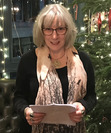Paula R.C. Readman's Blog, page 50
February 22, 2021
Book Launch Chat: Barbara Copperthwaite
Welcome to Clubhouse Chat page. Those of you who are not a member won’t be aware that the location of the Clubhouse is shrouded in mystery. The only way to visit it is via membership or an invite to the tearoom. Every few days, I’ll be sharing a conversation with all sorts of writers and authors at different levels of their writing careers. Over tea and cakes, or maybe a glass of something stronger, I shall be chatting with my guest about their work in progress, or latest book release.

Today we’re a celebrate Barbara Copperthwaite’s launch of her book, THE GIRL IN THE MISSING POSTER. Barbara is the Amazon, Kobo and USA Today bestselling author of psychological thrillers INVISIBLE, FLOWERS FOR THE DEAD, THE DARKEST LIES, HER LAST SECRET and THE PERFECT FRIEND. Her writing career started in journalism, writing for national newspapers and magazines. Barbara interviewed the real victims of crime – and also those who have carried those crimes out. She’s fascinated by creating realistic, complex characters, and taking them apart before the readers’ eyes in order to discover just how much it takes to push a person over a line. When not writing feverishly at her home in Birmingham, Barbara is often found walking her two dogs, Scamp and Buddy, or hiding behind a camera to take wildlife photographs.
Welcome Barbara.
Thank you for inviting me to the tearoom to launch my book.
You’re very welcome. First can I ask you did you try to be more original when writing this book, or deliver what you felt the readers wanted?
With each book I try to change things up, exploring new themes, locations, character types, and scenarios. Every time I finish I feel I’ve done the absolute best I could, but when I start a new book I try to push myself to improve and experiment.
My latest psychological thriller, The Girl In The Missing Poster, is about a woman who agrees to take part in a documentary to mark the 25th anniversary of her identical twin’s disappearance. She hopes she might finally get answers – then starts receiving messages from someone claiming to be the killer. One different way of presenting the book was to have some chapters that are transcripts of the documentary. They provide the background story, rather than it being in flashback ‘then’ sections, which are more familiar in my genre. By doing this, it brings the documentary to the front and centre of the book, rather than it simply being a device that provides an inciting incident. It meant I could ‘ask’ the main character Stella some questions and get answers that might not usually be possible, which gave the story more depth. It also tapped into my former job (I was a national journalist for over 20 years) and it was lovely to flex some of my old journalistic skills.
Did you feel energised or exhausted after writing this book?
When my fifth psychological thriller, The Perfect Friend, was published my career seemed to be going from strength to strength. Within weeks, though, I was hit by illness which left me barely able to think and sapped my strength to such an extent there were days I couldn’t walk my dogs. After six months I slowly began to rebuild my strength, but I’ve been left with long-term chronic illness that needs careful management. As a result, writing The Girl in the Missing Poster has taken two years (almost to the day) from having the initial idea to it being published – and it’s been almost three years since The Perfect Friend hit the shelves. There have been plenty of times when I didn’t know if I’d ever reach the end, but I passionately believed in the idea of this book and what I was trying to do with it, and that constantly energised me to keep metaphorically putting one foot in front of the other.
 Barbara Copperthwaite
Barbara Copperthwaite
Do you want each of your books to stand alone, or are you building a body of work that are interconnected? Whether that be a theme, a set of characters, a setting, etc. Explain more for our readers.
Each book stands on its own merits. The only thing that connects them is my fascination with taking everyday characters and seeing how they react as I pile more and more pressure on them. My background in journalism means I’ve had the honour of people sharing some of their most difficult times with me, and trusting me to write their stories with care; I think that’s why it’s so important to me to make my characters as realistic as possible, too, and always ensure they react in a way that is true to them.
How do you balance your demands on the reader with taking care of your readers? In the book did you spell everything out so your reader just had to read it, or did you rely on their emotional response to your words?
I think there’s an exchange of trust between author and reader that each will do their part. In other words, the author will give enough information to be clear, but not patronise them by spelling every little thing out; and the reader, knowing that, opens up their hearts and minds so that they can lose themselves in that make-believe world for a while, allowing themselves to be led along certain paths.
Do you hope your book will deliver you literary success and how will this look to you?
I’m not bothered by winning awards to give me critical acclaim (although I wouldn’t say no!). What matters most is that readers enjoy my stories – hopefully enough to then recommend it to friends, who recommend it to their friends, and so it goes on.
Was there anything you edited out of this book, you wanted to keep in, but you knew it would be a better book by cutting it?
First drafts are always such messy affairs, as I tell myself the story and discover what the characters are like, and twists and turns reveal themselves to me. As such, it means there are always extra things to be put in during the various other drafting and editing phases…and lots to be taken out, too! But everything that needed to be there, everything I’m proud of and that feels right for the book, is present.
 MISSING – Have you seen this girl? Nineteen-year-old Leila Hawkins was last seen on 24 June, 1994, when she left her parents’ anniversary party early and ran into the stormy night wearing her twin sister Stella’s long red coat. She was never seen again.
MISSING – Have you seen this girl? Nineteen-year-old Leila Hawkins was last seen on 24 June, 1994, when she left her parents’ anniversary party early and ran into the stormy night wearing her twin sister Stella’s long red coat. She was never seen again.I wrap my arms around the tree trunk, pressing my cheek against it until the bark digs in and the missing poster is finally secured. I try not to look at the photograph on it. At the features so similar to mine. Perhaps this will be the year someone comes forward.
Were crucial mistakes made by detectives from the very beginning?
Could the pressure of living two lives have led my sister to run away – or even end it?
Or did someone in her tight circle of friends and family have reason to want her gone?
Someone out there must know something.
But the last thing I ever expect is a direct response from the person who took Leila. Wracked with guilt and completely alone in the world without the other half of me, I have no choice but to agree to his strange request: private, intimate details of my life in return for answers.
As the final moments of my sister’s life play out before me, I feel closer to her than I ever dreamed I’d be again. So close, it could almost be happening to me. But when I finally realise who is behind this terrifying tragedy, will I make it out alive?
How long did you spend researching this book’s subject matter, or was it a book you had already planned?
I was spending a lot of time on my sofa bingeing on true crime documentaries as I initially started my long climb back to health. Near the end of one about the unsolved murder of BBC presenter Jill Dando, her brother, Nigel, said something that really struck me:
‘I just wish someone could explain to me – or a judge and jury – and tell me why they killed her. It makes no sense to me. It will never make sense to me.’
I wrote it down, because that single lined summed up so much. I tried to think of how I’d feel, not knowing the truth for so many years, and always having unanswered questions whirling around my mind. Just the thought of it had me in tears. And that made me think of the killer, the person who holds all the answers. How would the killer feel if s/he is watching? What if they were moved to get in touch and explain, or even apologise? What chain of events would be triggered by that…?
As I started to write I felt a great weight of responsibility to the victims who never get justice; to those who go missing and are never found; and to the families who wait in limbo, hoping for answers. Research ranged from voraciously reading about similar cases online, to crime statistics (which are scattered through the documentary sections of the story) to contacting The Lone Twin Network to ensure I accurately conveyed what it was like being someone whose identical twin had passed away. At one point I even got shut in the boot of a car in the name of research.
What was the hardest scene to write in the book?
Well, I can’t go into detail due to spoilers but… The scene that was the hardest emotionally was also one of the quickest to write as it seemed to flow out of me. I cried the entire time I typed it, and have cried every single time I’ve read it during edits.
How will you cope with bad reviews on this book?
Not everyone will like every book, so I cope with bad reviews by acknowledging that sad fact.
What’s the one thing you would give up to become a better writer?
Eek! Tough question! I gave up a well-paid job in order to pursue my dream of being a writer, and that meant serious belt-tightening; I rarely have days off or holidays; I work incredibly long hours (when my body allows me) and am constantly pushing myself to improve…so I’ve already given up a lot to become a better writer. Was it worth it? It must be, because I can’t imagine doing anything else. But I don’t think it’s about giving things up: what improves a writer is taking new things on, being open to constructive criticism, having a constant curiosity to try out fresh ideas, reading lots of books in their own genre and beyond, and also reading books/going on courses about how to improve their craft. I think it’s important to never stop learning and adding to your repertoire.
Thank you so much for joining me today, Barbara. I hope everything goes well with your launch. If you would like to find out more about Ann’s books check out the links below.
Buy links: Amazon: https://bit.ly/37bi1UJ Apple: https://apple.co/39ycwCv
Kobo: https://bit.ly/3mdTSDi Google: http://ow.ly/Vgnn50CxPSB
Website www.barbaracopperthwaite.com Blog www.barbaracopperthwaite.wordpress.com
Facebook www.facebook.com/AuthorBarbaraCopperthwaite Twitter www.twitter.com/BCopperthwait
Instagram www.instagram.com/BarbaraCopperthwaite
If you want to find out more about Clubhouse Members’ Books, don’t forget to check out the Clubhouse Bookshops, too.
Down To The River…
This morning walk was amazing. Keeping fit and healthy has always been my goal in life, since being shown a film during my school days about the damage smoking can do to our lungs was the reason I never took it up. I also avoid taking drugs apart from a headache tablets, but I guess I’ve always been lucky when it comes to my health. As a child I was lucky enough to grow up living next to a flour mill. The noise of the mill running was music to my ears as it clattered in to life as the belts that drove the machine whirled and rattled. So when there’s a chance to see a flour mill I love to go and have a look.
 Morning Sky, Over Essex
Morning Sky, Over EssexWalking has always been a joy for me. I love wide open spaces where you can get away from the traffic and just hear the bird song. At the moment it is hard in our village as there are three building sites, along with the gravel pits with their huge machinery trundling back and forth.
Today, my friend Ana and I headed out of the village towards Bradwell Church, but then took the path alongside Blackwater river in the direction of Coggeshall. Through the trees there isn’t much to see unless you know what is there, but once clear of the footpath the odd bricks came into view. After months of rain and then the snow the foundations of the old mill that once stood there can be clearly seen. Coggeshall West Mill was demolished soon after the Second World War.
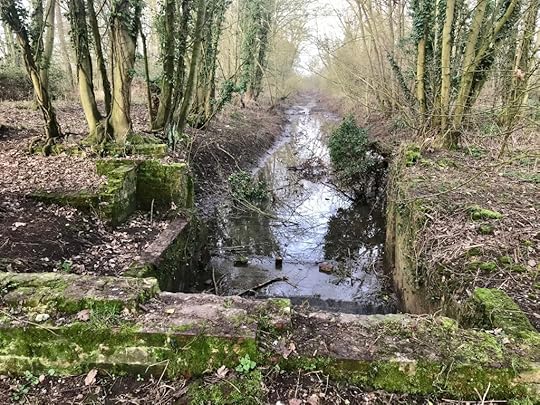 West Mill Coggeshall, Essex, England
West Mill Coggeshall, Essex, England
West Mill in 1787 was a fully working water mill. In 1849 West Mill was a combined corn mill and ‘woollen manufactory’. The corn mill was three storeys and a stage floor with three pairs of stones, leased to John Stollery. According to sale particulars “The part in hand comprises three spacious floors with the yarn and worsted machinery and other fixed tackle, but is capable of forming a most valuable addition to the flour mill for which increased the supply of water is quite equal.” The building and machinery were insured for a modest £1,600. The sale of the mill was followed by bankruptcy of Messrs Stephen, Fisher and Stephen Unwin, who ranked among the last of the Essex wool traders. (Take from Some Essex Water Mills by Hervey Benham first published in 1976)

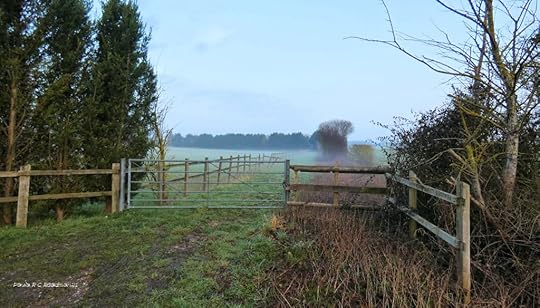






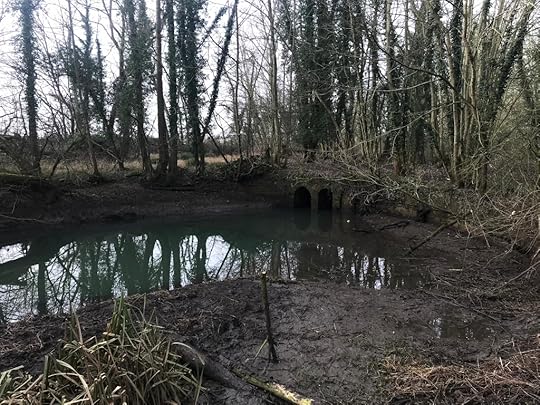




Today, my short story, What’s Normal was accepted by Cafelit. I’m very pleased to received an email from them this afternoon.
Here’s the link to their submission guidelines.
Chat again soon.
February 21, 2021
Questions: I don’t like your tone!
The written word is an amazing thing. How we interpret the words on the page is incredible. A poem can bring us to tears, a scene in a book can cause us to relive an experience, but words are also open to interpretation as we can all read between the lines rather than what they are directly telling us.
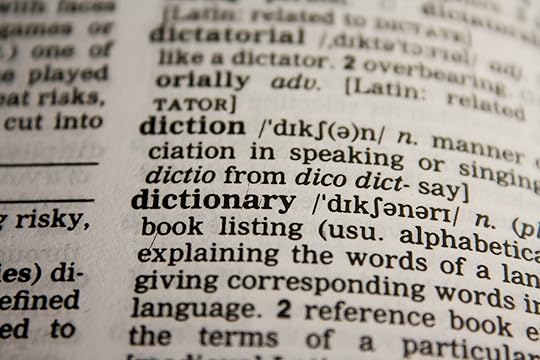 Photo by Pixabay on Pexels.com
Photo by Pixabay on Pexels.comQuestions are difficult, if there’s no relevant information. Everything is open to interpretation and this is where problems arises with social media. It’s how we interpret other people’s choice of words when we are just reading their questions or comments. Words need to be carefully chosen as each word has several meanings and can change the tone of the piece or question. Just check your dictionary. With the internet being global we all need to be aware that language in one country may also change the meanings of words too. Lost in translations, as they say.
When writing a novel we draw on our life experiences . The words we are using are injected with our emotions .i.e. a lost love, a death, a rape, jealousy etc. This gives a edge to any scene we are writing, if we have experience such drama in our own lives, so it affects our choice of words. Yes, we can imagine what it must be like to lose a child, if we are a parent. Yet someone who isn’t a parent may imagine what it might feel like, if they chose the right words to create the scene, then the reader will experience the raw emotions through the words on the page. I often find myself changing words because of how they sound, and then having to check that the meanings is the one I think it is.
That’s the magic of language, especially the English language. English is a West Germanic language first spoken in early medieval England according to Wikipedia. The English language is a mixture of many other languages which has been added to it over the course of its development for more than 1,400 years. This explains why commonly used words tend to have more that one meaning, and can change the tone of a sentence. Language is a living entity, and when spoken is used with facial expressions which don’t translate to the page.
So next time you comment on social media remember language is open to interpretation, and your meaning maybe lost in translation. 
 Lost In Translation
Lost In Translation
February 20, 2021
Editing: How do you tackle it?
In the final read through I find it helps to print it up and read it aloud. Though, it’s even better to have someone read it aloud to you. If you don’t have anyone to hand try using a dictaphone or recording device and listen to yourself reading it aloud while following the words on the screen. Lucky for me, this is where my husband comes in handy. When I first started writing and he read it aloud his tone was flat and inexpressive. My work sounded terrible. My husband isn’t a reader and doesn’t read novels, just manuals. Though over the years I’ve been writing he has read everything I have written more than once.
I can honestly say his way of reading has improved, or maybe it’s my writing that has  . Anyway, it is more helpful to me to hear how my work sounds to others.
. Anyway, it is more helpful to me to hear how my work sounds to others.
 Photo by Charlotte May on Pexels.com
Photo by Charlotte May on Pexels.com
The author Robert B Parker said about his writing,
“I think people like my books because they like the way the words sound.”
I keep Robert B Parker’s words in mind while editing. I think it is important to ask yourself questions while editing. Is this relevant to the plot? Does your reader need to know this? Have you told your reader this before? Why is this happening? The list might seem endless but you must remember the tighter your writing the more powerful your book will be. By focusing on the flow of your story telling the more you will carry your reader forward and keep them turning the pages.
It’s important to me to start with some action. All good ‘how to write’ advice tells you to write a hook at the beginning of your story, whether you’re working on a short story or a novel. I like to write a point of interest or hook within five to seven minutes. This is because if I’m ever asked to read my work aloud, I want to keep my readers interested in what will come next. I have on several occasions been asked to read aloud and found my point of interest didn’t come soon enough. So now I always write with this in mind.
So using your phone, record yourself reading aloud with a set timer, and imagine you have only a short amount of time in which to sell your story to a reader. Find your cut off point.
Go on give it a go.
February 19, 2021
Then There Are Days
You know the feeling. You’re staring at the screen and the words don’t want to come. Too many other jobs are screaming at you for your attention. This morning I went for a long walk and then made bread and a cake for the weekend. I got a few other household chores out the way too. This weekend I want to get ahead of the game. I have plenty of editing and writing to do. So hopefully when I’m back in my seat tomorrow the words will find me. Have a great weekend All.
What about you? What projects do you have on the go?


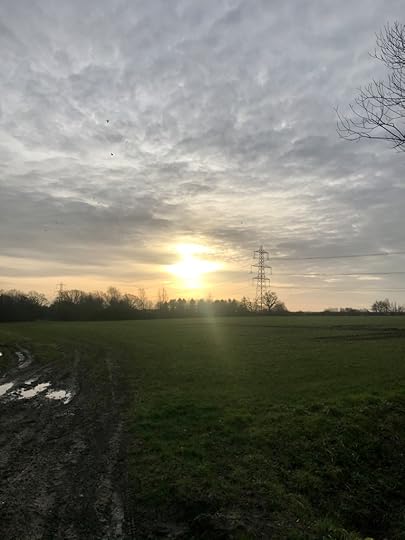



February 18, 2021
A Voice In The Wilderness
Can you hear me?
I still haven’t cracked this thing called Marketing. I don’t think it’s coming easy to me. I hate the idea of screaming into a void and not knowing whether anyone is really listening, or whether they’re just finding me rather annoying. Hello, it’s that woman shouting about her books again.
I know marketing is the key to success. As a writer you need to reach out to new readers and bring them onboard if your readership is going to grow. Even if you are signed up to a big publishing house and they’ve set aside a budget for your book, you are still expected to do a certain amount of marketing for yourself too. I have many writing friends who are published by a wide range of different publishing houses from big names through to self-publishing and marketing is the one thing that bother us all. Yes, if you are lucky enough to be with a publisher who has invested in creating an ad for your book, it does help with the marketing, but still you need to find places to share and promote your work.
 Photo by Clem Onojeghuo on Pexels.com
Photo by Clem Onojeghuo on Pexels.comEveryone is surrounded by advertising every day from washing powder to fancy electric cars, but how does someone make their work stand out in a sea of books on the internet. I joined over sixty Facebook sites that allow you to market your books for free. I was careful to follow their rules. I know from running my own online writer’s group how easy it is for someone to post an advertisement that screams buy my book and disappear, never to be seen again until they next need to market a book. You can get an author who markets the same book on the hour, every hour on one site. This makes for boring reading and it is why I set up the clubhouse bookshop so writers could advertise their books there rather than in the main clubhouse. Here’s the link to the Clubhouse Bookshop
I tend to advertise my books every few days, on Twitter, LinkedIn, and across the Facebook sites. I have found a few readers requesting recommendation for books and have mention mine, but these are few and far between. I do try to be active on the sites I’ve signed up to, but some of them are just full of buy my book type ads and it makes me wonder how successful the authors are at selling their books continually on these sites. I got thrown in Facebook jail for three day for spamming. I posted my Tearoom Chats and a series of ads for my crime novel, Stone Angels over all the sites on the same day. Oops, it was tough as I could only post on my own groups and personal page for three days. Yesterday, while out walking I chatted to a dog walker I had spoken to before. He told me he’d recently finished reading Stone Angels and had been impressed by it. Hopefully, he will pass the word on to others as word of mouth is the best marketing tool.
I must admit some of the book ads are brilliant, and I wish I had the time to learn how to make them for my own books. My time is precious, like all writers. Writing a novel takes time, and can’t be done in a rush. Well, for me I can’t. I need time to think outside the box and plan my plot line. At the moment, I’m editing while planning and writing a 7k short story and working a new novel too. So where do I find the time to fit marketing in while doing everything else I need to do? Good question. My publisher for Stone Angels has a promotional weekend coming up in March so to try to increase my readership I have invested some money into paying for marketing for two of my books, Stone Angels and my collection of short stories, Days Pass like a Shadow
 My gentle ad….
Come Buy My Books
My gentle ad….
Come Buy My Books
Yesterday, I signed up with Book Cave and Fussy Librarian, both I have used before. I’ve see a slight increase in my sales by using these company and they are both inexpensive to use too. The problem is as both companies are American and market to the own country. I’ve yet to find a British promoting company that’s within my price range to use.
I shall let you know how I get on.
February 17, 2021
Clubhouse Guest’s Chat: Gary Rubidge
Welcome to Clubhouse Chat page. Those of you who are not a member won’t be aware that the location of the Clubhouse is shrouded in mystery. The only way to visit it is via membership or an invite to the tearoom. Every few days, I’ll be sharing a conversation with all sorts of writers and authors at different levels of their writing careers. Over tea and cakes, or maybe a glass of something stronger, I shall be chatting with my guest about their work in progress, or latest book release.
 Photo by Pixabay on Pexels.com
Photo by Pixabay on Pexels.comToday I’ve invited Black Hare Press writer, Gary Rubidge to join me. Welcome to the tearoom, Gary.
Thanks for the invite, Paula. The room is much bigger than I thought, but comfy too.
Yes it’s very cozy too. We want our members to feel right at home here. Now we have our refreshments let me start by asking you when you first begun your writing journey what drew you to your chosen genre?
I started writing poetry when I was in high school many, many years ago (1980s) I was an angry teenager and very much into protest songs. I was a big supporter of people like Peter Garrett of Midnight Oil fame. I think my poems were a thinly veiled attempt to write lyrics for a protest song to begin with but became protest songs reflecting the angst of angry teenagers as influenced by the media of the time. Outside of that Science Fiction and Horror have always been a big influence.
Tell us a little about latest writing project. Is it a new idea, or one you have been mulling over for some time?
The current project is my first project. I discussed a number of things with my good friend, Gregg Cunningham, and suggested he write a story based on an idea I had. He knew I’d written poems when I was at school and had been trying to get me to write something, anything, to get me back into writing. When I pitched my idea to him, he shrugged his shoulders, looked me in the eyes and said “You write it.”
Gregg introduced me to Black Hare Press and I started to write my story. I soon discovered a number of perils associated with writing stories. The most obvious was that being a novice, I wasn’t about to write a 100,000 word novel straight up, even though the idea was all there in my head. I broke it down into smaller chunks because BHP were looking for some stories.
I needed to be a published author so I put my story aside and worked on drabbles, eventually some success. So, with a big head from my drabble success I submitted my first story ‘chunk’ to BHP expecting it to be accepted.
It was rejected. So was my next chunk and a third chunk. The story is now sitting on my computer, eagerly waiting for me to revisit it.
Gregg calls it my submarine story but I look upon it as an alien story. The synopsis being Aliens visited Earth and established Atlantis. Something evil was stored at Atlantis because there was nowhere else in the known universe willing to take it, causing a war which ended with the Aliens leaving Earth and Atlantis being buried at the bottom of the ocean along with the evil prescence. Fast forward to today and a submarine has been mysteriously despatched to find an ‘item’ at the bottom of the ocean. Weird things happen as people and animals emotions seem to be manipulated as they get closer to the item. In effect, a conspiracy between an alien race and the government.
 Gary Rubidge
Gary RubidgeHow many unfinished projects do you have on your computer?
Lots. As mentioned, my first big project. Then there were several stories I started for various anthologies that were never completed on time. I’m hoping I can manipulate some to fit into future anthologies.
Choosing only five of your favourite authors. Can you list them in order 1 begin the top of your list and say how have they influenced your writing?
You know, Paula? You are one of several authors I’ve come across since entering the world of Facebook that has intrigued me. I’m starting to draw inspiration from a number of you as I read your contributions to the anthologies I have been involved in (either being accepted into or rejected from). Time permitting, I am starting to read a little more widely (including your stories, ‘Stone Angels’, and ‘Funeral Birds’.) to find ways of tackling story lines and character development.
(Thank you for saying so, Gary. )
)
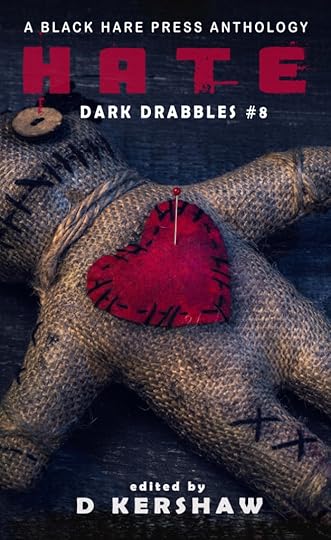 https://readerlinks.com/l/1029265
https://readerlinks.com/l/1029265Were any of your characters inspired by real people?
Hard as I try, I cannot help but notice I have described some people I know when writing the odd character. It was not my intention to do so but looking back, it’s what I did. More often, I am influenced by movie characters or characters from books. For example, Clive Cussler describes two close characters, Dirk Pitt and his buddy, Al Giordino. They have some wonderful banter and I cannot help but imitate that. My sense of humour is very much Douglas Adams and Monty Python, and that comes through with my friends and family. In essence, not the character, but some aspects are drawn from a variety of places.
I find I have to describe the characters on a separate piece of paper to avoid crossing the traits of the various characters in the story with other characters.
What did you learn when writing your book and story? In writing it, how much research did you do?
My first attempt at a story (discussed earlier) was set on a submarine. I put a lot of effort on line to learn about submarines, weapons, government positions, etc. It surprised how much I had to learn in order to start writing a story that was somewhat accurate.
I’m currently involved in one of the 13 book series that was with Black Hare Press and is now at home with Raven and Drake. The book is set in an asylum in England in 1950s. I’ve needed to do a lot or research to get as much authenticity as I can. As a newbie to the writing world and now writing with some considerably more experienced writers, I am feeling the pressure to get it as right as I can (all self-imposed pressure).
I’m used to writing papers, reports, etc. So I’m fine with getting the facts correct. I just need to focus on being more descriptive and emotional. Therefore, I’m learning heaps about what to include and to what extent. The best way to learn is to dive in and seek as much feedback as I can.
Is there anything about you your readers might be surprised to find out?
I mentioned my auntie and my long haired, hippy protest phase growing up. Something my dad likes to tell people is that I was a Police Officer in the WA Police Force for a number of years before becoming a legal drug dealer (I sold pharmaceuticals to doctors, nurses, specialists in hospitals and GP clinics).
And being dragged into the 21st Century. I was not on social media until I started writing. Then I joined facebook in a moment of insanity. Now I’ve moved on and joined several on line writing groups to learn and become inspired. When I feel I have reached the point where I can contribute more then I’ll contribute to some of the groups. Until then, I’m a keen observer with not enough time on his hands.
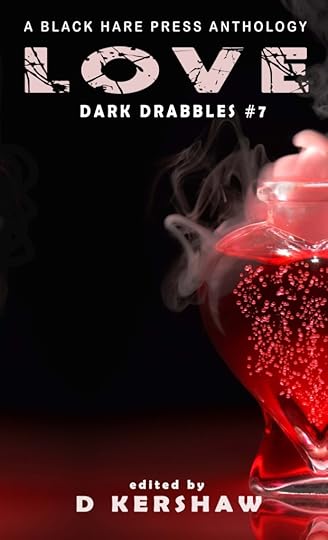
Did you ever consider writing under a pseudonym?
The fear of rejection was a big motivator in my consideration of using a pseudonym. However, common sense kicked in, along with my ego. If a story was to be accepted, it needed to have my name attached so that people knew it was me. If it’s a crap story then…I only wrote it, the publisher accepted it! I still hate rejection emails (we all have them) but I’m learning and so I will eventually have a book (We can only dream, can’t we?) with MY NAME on it.
As a newbie, I’m crawling. I hope to claim soon that I’m walking and I’ll claim to be running if I ever have a book out. If I do, you’ll know it was mine because my name will be on it.
How do you select the names of your characters? Do you know everything about them before you start writing their story?
For a slightly historical sense, I googled the most popular names of that era. My character shares my initials with names popular from that era. I had an idea of what they looked like, mannerisms, etc. These were somewhat stereotypical. In some sense, I also asked myself “Does he look like a Kevin to you?” or “she doesn’tseem like a Jane at all.” We all have our ideas of what they look like and I know everyone has a different idea so I go with what I think they look like.
I did some ‘Alien” research and came up with a list of names from supposed alien races mentioned in shows like “Ancient Aliens”, etc. When I did these, my knowledge of the character was limited to what I knew of the few facts mentioned about the race/species.
As for the others, the obituary column works for me. I can mix and match Christian and surnames. I even found a few interesting names to give the ethnic characters, too.
How long on average does it take you to write a book and story?
In short – a bloody long time.
It’s hard for me to find time to write! There is so much happening in my life at the moment. Trying to get the story done on time for the ‘13’ book I am involved in is hard enough. Add that to my current studies – I am doing an on-line course in Project Management and trying to find a new job outside of the drug industry, my wife has a list of jobs to do around the house because we cannot travel during these Covid times.
I’d like to have a lot of time but writing doesn’t pay my bills. As mentioned earlier, most of my efforts don’t make the deadline. Most of the time, getting started is the issue. Once I get started I can knock out several thousand words. It’s then a case of putting it away to pull out later and review, hopefully so that the story can be refined to the word limit and submitted on time – If I remember.
I used to procrastinate, now I’m not sure if I should or shouldn’t write a story this way or that way!
Thank you for joining me in the tearoom, Gary. If you would like to find out more about Gary’s work check the link:
Gary Rubidge – Facebook: https://www.facebook.com/gary.rubidge.7/
Black Hare Press Author Page: Gary Rubidge
If you want to find out more about Clubhouse Members’ Books, don’t forget to check out the Clubhouse Bookshops too.
February 15, 2021
Clubhouse Guest’s Chat: Eric Labrie
Welcome to Clubhouse Chat page. Those of you who are not a member won’t be aware that the location of the Clubhouse is shrouded in mystery. The only way to visit it is via membership or an invite to the tearoom. Every few days, I’ll be sharing a conversation with all sorts of writers and authors at different levels of their writing careers. Over tea and cakes, or maybe a glass of something stronger, I shall be chatting with my guest about their work in progress, or latest book release.
 Photo by Ivan on Pexels.com
Photo by Ivan on Pexels.comToday, I’m chatting to horror writer, Eric Labrie. Welcome to the tearoom, Eric.
Thank you for the invite, Paula.
Now we have our refreshments let me start by asking when you first begun your writing journey what drew you to your chosen genre?
I mainly write horror, dystopian, and Science-fiction because those are the genre I read most. When I started my writing journey, I had my Birdman Project story in mind, which is why I started writing into the dystopian genre. The other genres (horror and science fiction) came when I started to submit to Black Hare Press calls (it was the Dark drabbles at the time.) These calls gave me the perfect opportunity to try my hand at the other genres.
What writing elements do you think is your strongest points, and what would you like to do better?
I think descriptions and “emotions” are my forte. I mean emotions because I like to go deep into the characters thoughts, feelings, how they see and react to their environment, etc. I like to create thick ambience, dark and unsettling moods. In fact, that’s what I prefer and it’s often how I start my stories. I create a thick ambience that gives the voice to the story.
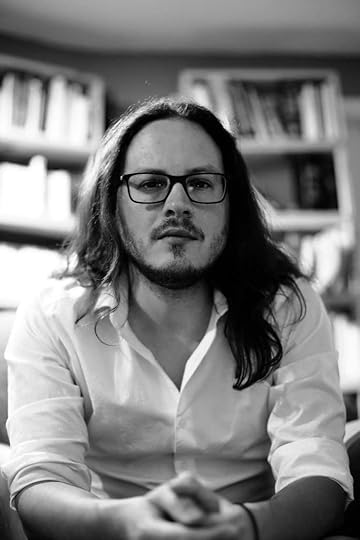 Eric Labrie
Eric Labrie
Tell us a little about latest writing project. Is it a new idea, or one you have been mulling over for some time?
My latest project was a novella I wrote for the BHP dystopian call. It was a story I had on my list for years and the call gave me the opportunity to write it. I had all the notes, the general plot, and I knew exactly how it had to end. It’s probably one of the work I’m the proudest of (read here the darkest one I have written.) I wanted a story that wasn’t all about action and violence but more about the deep and troubled psychology behind the characters, and moreover, the bonding between the MC and a young boy. I can’t tell much, but the story deals with a lot of heavy stuff.
How many unfinished projects do you have on your computer?
I don’t have any unfinished project. I always finish what I’ve started before jumping into another project.
Do you write a synopsis first or write the first chapter? If you only write short stories, do you plan your story or let the characters lead you?
Pantser team here! Ok, not totally pantser. Sometimes I plot the whole story and other times I’m too lazy to do it, or I feel like going straight into the serious stuff, unprepared. Sometimes, when I do plot, I end up with exactly what I had initially envisioned, other times I just let my mind go wild and I end up with a totally new story than what I had first imagined.

Choosing only five of your favourite authors, Can you list them in order 1 begin the top of your list and say how have they influenced your writing?
1) Algernon Blackwood (for his powerful and scenic descriptions, as well as the way he slowly builds the climax in his story.)
2) William Peter Blatty (The Exorcist is a major work and one that deeply influenced me for so many reasons. His writing is incredible, simple yet striking.)
3) Ray Bradbury (his imagery and prose are simply unequalled. Not always easy to follow, especially for people whom English is not their first language. But, wow! An incredible author.)
4) H.P. Lovecraft (Lovecraft inspires the way I tackle my horror stories. Thick ambience, plenty of scenic description, weird stories that evolves slowly but strongly building a climax that leads to the final scene.)
5) Boris Vian (I can’t say he is among my favorite authors, but his book “L’Écume des Jours” inspired me in many ways. How it starts easily and naively and ends up in a dark, cynic world. And the ending is pure gold.)

Did you uncover things about yourself while writing your books or stories whether that be a long forgotten memory, a positive experience, etc.
Most of my stories are dark, often cynic, and rarely do I place humankind on a pedestal. To put it simply my vision of the world almost always transpires into my stories in a way or the other. And, most of the time, Nature plays a strong role, and I don’t pass on any occasion to make human faces nature and show how pitiful and ridiculous we are when facing these forces we have no power over.
How many hours in a day do you write?
I try to write at least one hour a day. During my lunch time at work. Sometimes I also write when I come back home, and every morning or the weekend.
Did you ever consider writing under a pseudonym?
No. My “pen name” is just my name (E.L. for Eric Labrie and Giles is my mother’s name.) I wouldn’t write under the name Labrie though since it sounds too “Frenchy” and I wanted something a bit more “universal”.

How long on average does it take you to write a book and story?
I’m a slow writer. Even if I can lay many words a day, revising my stories until I am satisfied with it takes a lot of time. A full novel can takes me between 6 to 12 months. I’m quicker with short stories and novella. My most recent novella took me about 1 month to write.
Thank you for joining me in the tearoom, Eric. To find out more about Eric’s writing click on the links below:
If you want to find out more about Clubhouse Members’ Books, don’t forget to check out the Clubhouse Bookshops too.
February 14, 2021
Clubhouse Guest’s Chat: Chris Bannor
Welcome to Clubhouse Chat page. Those of you who are not a member won’t be aware that the location of the Clubhouse is shrouded in mystery. The only way to visit it is via membership or an invite to the tearoom. Every few days, I’ll be sharing a conversation with all sorts of writers and authors at different levels of their writing careers. Over tea and cakes, or maybe a glass of something stronger, I shall be chatting with my guest about their work in progress, or latest book release.
 Photo by Adrianna Calvo on Pexels.com
Photo by Adrianna Calvo on Pexels.comToday, I’m chatting to horror writer, Chris Bonner about her writing and books. Welcome to the tearoom, Chris. Let’s order our drinks.
Thank you for the invite, Paula. Please I could have a Chai Tea Latte, thank you.
Now we have our refreshments let’s start with when you first begun your writing journey what drew you to your chosen genre?
I have always loved a good sci-fi or fantasy novel. I can’t say that I ever thought about what genre I wanted to write in because as soon as I put pen to paper, that’s where my brain goes. The thing that surprised me the most when I started writing as a professional though, was that my writing took a decided turn to the horror genre. I never anticipated writing darker stories, or horror, but a good portion of the short stories I’ve had published are horror. Which is funny since I’m terrified of horror movies. I can’t watch them!
 Chris Bannor
Chris Bannor
What writing elements do you think is your strongest points, and what would you like to do better?
I’ve always enjoyed really good world building and I think that comes through in my writing. The act of creating new places and different cultures fascinates me. Some stories need a very in-depth exploration, while in some short stories you only have a few words to get that world fleshed out. I love that challenge. As for what I would like to do better, plot. Call me a pantser, or a gardener, or a discovery writer. Whichever title you like, I love to discover my characters and their worlds as I go, but there are times when having an outline might be nice. It’s an art I’m learning.
Tell us a little about latest writing project. Is it a new idea, or one you have been mulling over for some time?
The novel I’m currently writing is an urban fantasy story. I really enjoy this genre and there are so many fun ways to play with it. My love of supernatural creatures and police procedurals wrapped themselves together on this one. It’s about a group of supernatural creatures who work to protect a world where humans and non-humans co-exist. This idea actually came about as I was trying to write a short story for a paranormal romance anthology. The story was too long, but even as I was writing it, I kept thinking this would be a great novel. My only question became whether to expand the short story and make it novel-length, or keep the short story as a prequel of sorts, and write a novel set in that world. I had a ton of ideas come together for all of it, and in the end, I just may have possibly given myself enough plot for a sequel. We’ll see how the first one goes before I make promises though!
How many unfinished projects do you have on your computer?
Oh wow. I … way too many. I start every month with a pretty large list of things that I would like to write for. Some stories don’t pan out. Sometimes they aren’t hitting the right tone for the submission call that I’m writing for. Sometimes I just run out of time and have to prioritize other projects. I never throw anything away though. At the beginning of each month, I start with that list of stories and see if there is anything I can pull out to complete that would fit something I want to submit to. Sometimes it works. Sometimes the idea you had for two or three short stories play around in your brain until they become something else entirely different and that mash-up is so much more fun than the original ideas.

Do you write a synopsis first or write the first chapter? If you only write short stories, do you plan your story or let the characters lead you?
Oh, I sit down at a blank page and just start typing. There are times when I’ll have an idea or a theme in mind. Sometimes, maybe a bit of dialogue will pop into my head. When it comes to anthology calls, sometimes the cover art of the book will inspire me. The characters most definitely lead me though. Through the good and bad 
Were any of your characters inspired by real people?
I try not to do that too much, but I did write one story that featured my brother and me. He’s always been very supportive of me, even if we have a rather strange sense of humor together. There was a horror anthology about siblings, and I teased him that I was going to turn us into a sibling horror story. It got published by Nocturnal Sirens, in their Scary Snippets: Sibling Edition. When it came out, I bought a copy and signed it for him. He took it in good humor.
But now that I’ve said that, he was also a bit of my inspiration for my story “Piece of My Heart”, in Banned from Black Hare Press. He and my mother both, though only in a very abstract way.
Do you set yourself a daily word count?
I have a horrible habit of only writing when ‘the muse’ calls. It’s something that as a new writer I could get away with, but the more time and energy I put into my career, I know that it’s just not feasible long term. I’ve recently started a word count of 500 words or an hour of writing a day – for the days when the words just aren’t being kind. It’s not a lot, but I’m working on the habit of daily writing, alongside my mad marathons of inspiration.
How many hours in a day do you write?
I’m working on that hour! One of the things I struggle with as a writer is finding a way to balance my writing career along with my day job, along with being a single mother, and finding time for myself. It’s a lot to tackle. Some days I manage better than others. But in the end, I am passionate about what I’m writing and even on my bad days where I can’t manage the words, the story ideas are still brimming in my head.

How do you select the names of your characters? Do you know everything about them before you start writing their story?
In general, I just sit down and start writing. Even the names are new to me as I type them out. Whether it’s a common earth name, a fantasy realm, or an alien planet, I just make it up as I go. Occasionally I will need a name to mean something and I might hit the baby name sites, but I generally just go with what feels right. just go with what feels right.
It’s actually very exciting for me because I know nothing about the characters when I start. The story grows around my exploration of who they are, what problems they’re encountering, and what resources they have to face those. Now, that doesn’t mean those first pages always make it into my stories. Quite often they are heavily edited or removed entirely, but the adventure of following them is one of the things I truly enjoy about writing. Even when I try to plot things out and outline, I do it knowing full well that my story will never come out looking anything like the original plot!
What was your hardest scene to write?
I was thrilled to have been a part of Black Hare Press’s anthology, Zero Hour 2113. It was an author led anthology, pulled together by the amazing David Green. I love steampunk and cyberpunk and getting to play in this cyberpunk world that David was creating was just amazing. As it happens, the story was going along quite nicely, until it decided to take a turn sharply into body horror. As I said before, I’m not a horror person. I had no experience with that particular sub-genre, but the story went that way, and I was determined to follow. I had to do quite a bit of research into body horror to make sure I could deliver on the promise I was making the readers. It took some hand-holding and I was blessed with some very enthusiastic feedback, which got me through. In the end, it was a great challenge, and I’m happy I took it.
Thank you for join me in the tearoom, Chris. To find out more about Chris’ books on her website at https://www.chrisbannor.com/
If you want to find out more about Clubhouse Member’s Books, don’t forget to check out the Clubhouse Bookshops too.
Blurb Writing ✍️
Yep, if you thought it was tough writing a synopsis, think again. If you’ve written a novel, book or a novella whether it is self published or published by a publisher you will need to write a blurb. Yesterday, I spent most of the day trying to write one. What was the best starting point? What to put in it, and how to punch my potential reader so hard on the nose, they just had to buy my new novel.
What’s a blurb?
It’s the selling paragraph that’s on the back of your book, or next to the book cover on Amazon, or any other online marketing place. You need to be able to sum your book up in at least 160 words or less and finish with a question that will hook your reader.
Why a question? This is what will get the reader to buy your book, as they will be so intrigued and will want to read it to answer the question for themselves.
You’ll need to sum your plot up 1) Exposition: set the tone. Introduce your main character/s and setting. 2) Conflict and Climax: what problem does your character/s need to solve on their journey through your book (remember, no spoilers) 3) Resolution: set up a question which will spark the reader’s curiosity enough that they will want to buy your book.
The secret to writing a great blurb is getting to the heart of your story. What’s at the heart of your book? Can you sum it up is a single sentence?
Is it relationships, greed, bitterness, lost love, lost treasure, a driving need to find themselves, seekers of the truth, the list is endless. It doesn’t matter whether your book is a crime, romance, sci-fi or historical novel,j every book need a blurb. This is your one and only opportunity to reach out and grab your readers by the throat and drag them in.
In a few words you will need to make the blurb scream buy me! at the reader. Your job is to work out exactly what words will scream the loudest at your potential buyer. So use your synopsis as a summary of your book, but also tear it to threads and get to the real beating heart of your plot. Think about what made you buy the last book you read. What got your pulse racing? Which words jumped out at you? Did the blurb match up to the story in the book, or did you say to yourself, Well, that wasn’t what I thought it was going to be about 
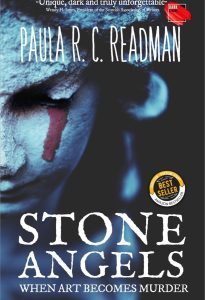
Just when you thought writing a blurb was tough, there’s one other thing you need for your book cover. A tagline. A sentence that sits on the cover under the title. It’s a kind of enticement, a bit of a tease.
Taglines are found on all products. They are what sell a product.i.e. Tesco: Every little helps. Nike: Just Do It. Audi: Advancement Through Technology. Maybelline Madeup: Maybe she’s born with it.
What makes a great tagline? It needs to be memorable. short, sharp and say something to your readers. On my novel Stone Angels the tagline was When Art Becomes Murder. It tells the readers everything they needed to know. This novel features both crime and art within the storyline.
My problem is come up with a new blurb for my next book, and a tagline that makes an impact. I’ve lived with this book for too many years, but it is only since having Stone Angels published that I realised my job wasn’t finished when I wrote The End in this book. Marketing your books is a whole new skill that has to be learnt. This time I’m ahead of the game and have my marketing head on early to think on a deeper level when trying to find a selling point for my next novel, one to really hook the readers.
Bye for now. I shall let you know how I’m getting on. Have a great day.


